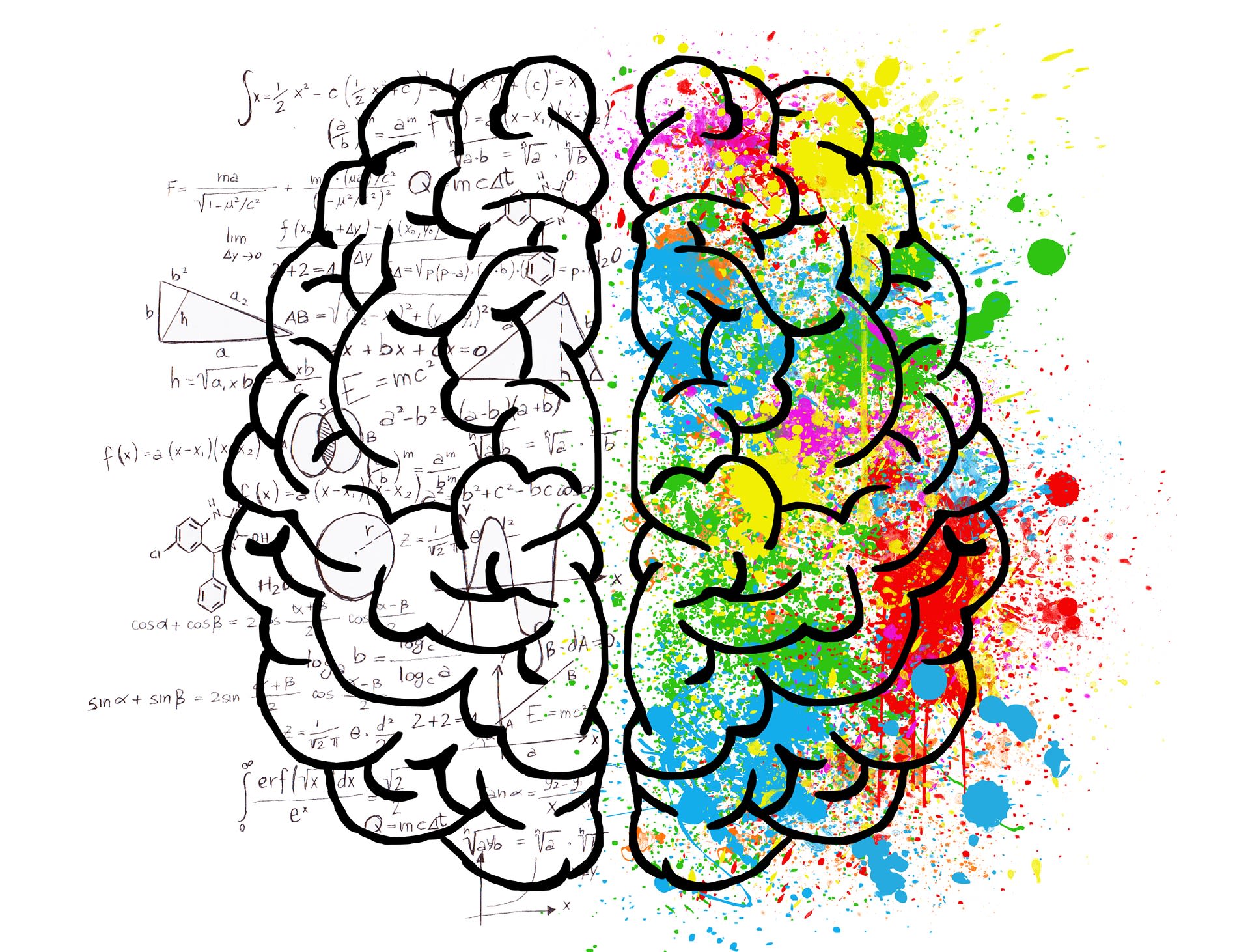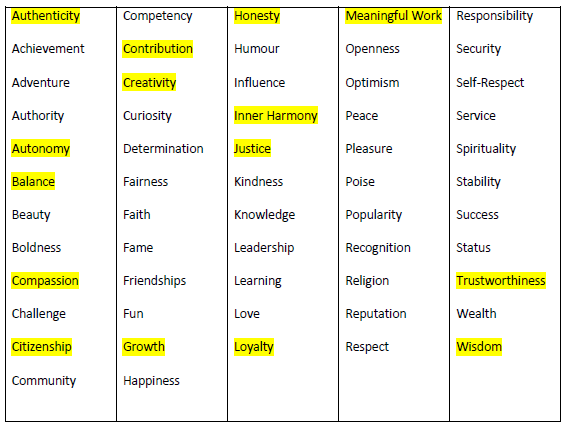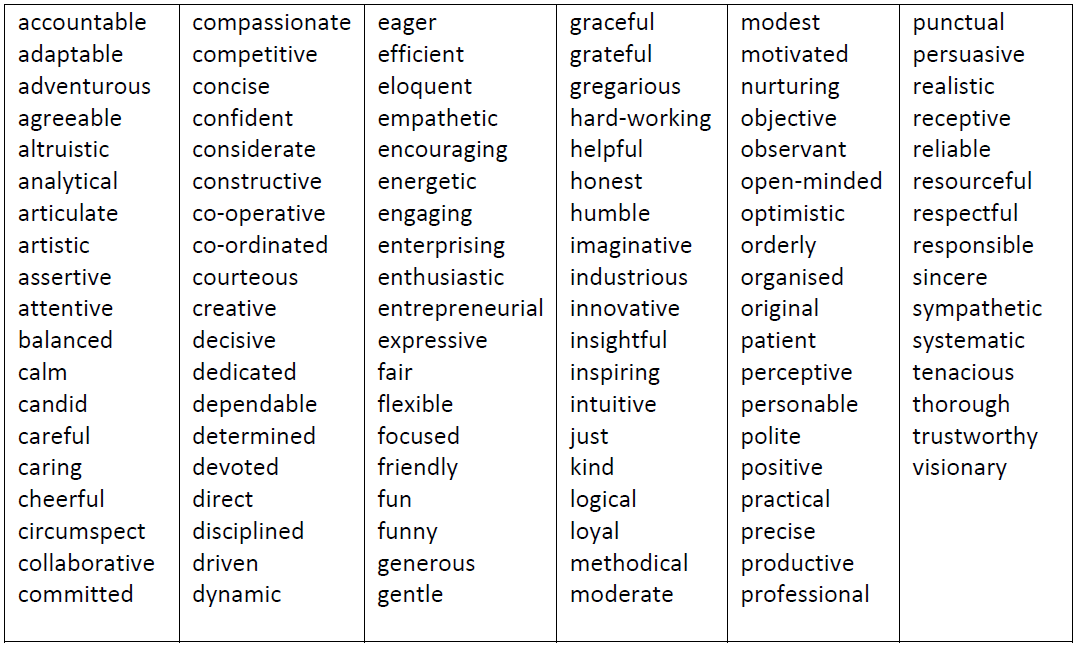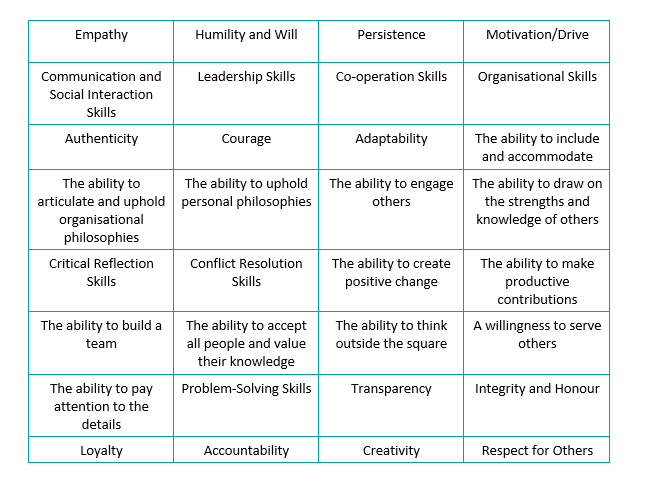Values and Virtues
Experiential Education

Introduction to Values
Our values are standards of behaviour that we set for ourselves or that we learn over time from our life experiences. They are particular ideas about ways of being and represent the things we feel most strongly about. Our core values are part of our worldview, which includes those beliefs and understandings about the ‘right ways’ of doing things. They are what we stand for (see Collins, 2006) and include the ‘promises we make to ourselves and others’ (Morrison, 2007, p. 66).
The following short video clip details what values are and how to identify your own and prioritise them. The video has an accompanying article (if you scroll down the page) that has additional learning activities that we encourage you to work on.
What Are Your Values? Learn how to Identify Values and Beliefs | 2:14 mins
Please read the accompanying article to this video.
You will find that one of the activities is an inventory containing approximately 100 values to consider. If you prefer to explore other values inventories you may find alternative options with lists that contain options more relevant to you. One way to do this is simply through doing your own desktop research and exploring links to inventories.

Values Inventory
Once you decide on the values inventory you would like to use, we recommend you do the following:
- Select 15 Core Values from that inventory (or write your own)
- Narrow the list from 15 to 5, then write a statement next to each value to say how you demonstrate it in action (i.e. how you live your values) - and then why
- Now reflect on how that value might be important in the work context
For example, the inventory below has been developed from James Clear (2017). I have highlighted 15 in yellow that I feel most strongly about (for demonstration) and then narrowed it down to 5 by making those bold text. The next step would be to write a statement about how you live that value, why and what it means in the workplace. For example:
Authenticity: I never pretend to be someone that I am not. I’m down to earth and real. If people ask me a question, I answer honestly and openly and try to be transparent - always. The reason I live this value is because I don’t feel comfortable trying to be someone that I’m not and it annoys me when I see others do it. Also, from experience, I have found it is a better way to establish trust and develop relationships where communication is more open. In the workplace, one time when I wasn’t completely transparent, it compromised the respect I had with a manager. This later resulted in not securing a leadership position I really aspired for. Since then, I never compromise on this value.

Some of you may have noticed that there are a number of values not listed on the inventory example I have provided above. Also, some values carry similar meaning. Try not to get consumed by the words and think more about the process. Ask yourself:
- What matters to you and why?
- What would you do if your values didn't really align well with the future career/s you had in mind?
- What would you do if you worked for an organisation that had a focus on values different to your own? How would that impact on your career decision-making?
List 10 points in your blog as to what you want to be remembered for.
Now consider, why are these things important to you?
The entire point of these exercises is to ensure students engage in reflective thinking about who they are, where they are going, and why. To continuously think about what happens if you compromise your values or don’t develop skills. Part of completing the program requires students to think back and compare/review progress so we strongly recommend you complete these activities.
The following section concentrates on virtues/personal attributes. Who you are, or what attributes make you who you are, also plays an important part in life decision-making.

Introduction to Virtues (or Attributes)
Personal attributes or virtues are characteristics that make you unique, like personality traits. It’s important to understand what your attributes are when considering work options, so that at minimum, you can be yourself and be more appreciated for it in the workplace (see Manitoba, 2017). This is about finding the right fit for you and your job/s.
A personal attribute is a characteristic or quality that you have.
There are other practice and portfolio modules as the associate degree progresses that allow you to further explore your personality, and characteristics and other aspects of your identity. For the moment, however, we have started by including some learning activities designed to enable you to begin exploring your personal attributes and thinking about them generally.
The Career Development Manitoba Manual (sourced 2017) contains various activities around identifying skills, values, and attributes and for goal planning. One such exercise relevant to understanding your personal qualities is on page 15. Please see below a slightly modified version.
1. Select 20 of the attributes from below that best describe you. Alternatively, write your own, or conduct research to find other attributes inventories or checklists that you may prefer to use.

2. Narrow the list to 10 and then explain for each how this may be a strength or a weakness in the school or work environment – or in other aspects of your life outside of these contexts – and what you plan to do about it if it is a problem.
Example:
If I were to select 'dedicated' I would say it is a strength in the work environment because it ensures that I meet deadlines, develop respectful relationships with colleagues and students, and feel good about myself i.e. fulfilled. If I were to select 'methodical' I would say it is a strength because everything is ordered and organised but it may also be a weakness because it can take so much time to be that way (especially if I am being 'particular' for instance). Therefore, as a plan for the future, I might have to set some limits around how long I spend drawing timetables and micro-editing my own work.

Work Attributes
A slightly different exercise to gain another perspective, is to think about ‘work attributes’ now rather than personal attributes. In many cases these are an attribute combined with a value and a skill.
1. From the table below, highlight the 10 qualities/values or skills you think are most important to have in your current (or future) workplace. This table has been developed drawing on material from ‘The Other Side’ - see references list.

2. Why do you think those that you have selected are important in the context of your current or future workplace?
3. Do you have these qualities and skills? If yes, provide examples (or evidence in your portfolio), if no, what are you going to do to develop these?
There are no right or wrong ways of completing learning activities about self-discovery and reflection on ‘who I am’ and ‘what I can improve on’ and then later expanding on ‘why’, ‘how’ and ‘when’. You can do this in your reflective blog in your portfolio or create your own reflective journal. The point is, we are encouraging students to engage in reflection and planning so they have a deeper understanding of what they are learning and why it is important.

Summary
There are a number of learning activities, readings and teaching materials on skills, values and attributes. Some learning activities or exercises combine skills, values and attributes and some separate them. The main message, is that they are all important to consider for personal, academic and professional development.
The take home message from this module is that we recommend students explore and reflect continuously on their skills, values and attributes and make meaningful connections between how theory transforms into practice. If you have the skills, how will you apply them in a variety of contexts? If your personal values conflict with workplace values, what will you do? If aspects of your personality or character have the potential to impact on how you perform at work or relate to others, what is your plan?

References
Morrison, M. (2007). The Other Side of the Card: Where your authentic leadership story begins. McGraw-Hill: New York.
Collins, J. (2006). Good to Great and the Social Sectors: A monograph to accompany good to great. Random House Business Books: UK.

